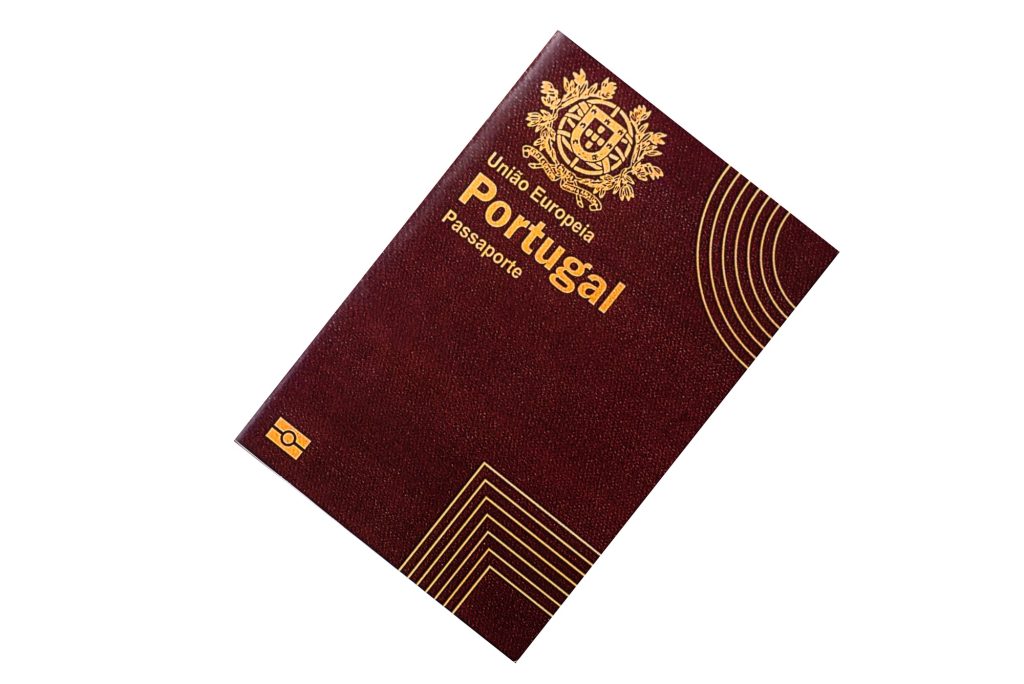Porto vs Lisbon: The Complete 2025 Expat Relocation Guide
Portugal continues to attract record numbers of expats in 2024-2025, with Porto and Lisbon emerging as the two primary destinations. Porto offers 20-30% lower living costs and better rental yields, while Lisbon provides superior international connectivity and a larger expat ecosystem. The choice ultimately depends on whether you prioritize affordability and authentic Portuguese culture (Porto) or international opportunities and vibrant city life (Lisbon). With 400,000+ visa applications backlogged nationwide and major infrastructure projects underway in both cities, timing and realistic expectations are crucial for successful relocation.

Cost of living reveals stark differences between cities
The financial gap between Portugal’s two major cities has widened in 2024. Porto residents save approximately €760 monthly compared to Lisbon for the same standard of living. Housing drives the largest cost differential, with Lisbon commanding 28-38% higher rents across all property types. A one-bedroom city center apartment averages €1,033 in Porto versus €1,389 in Lisbon, while three-bedroom apartments reach €1,909 and €2,634 respectively. numbeo
Beyond housing, daily expenses compound the cost advantage. Restaurant meals cost 10-30% more in Lisbon, with an inexpensive restaurant meal averaging €10 in Porto versus €13 in Lisbon. Grocery prices show similar patterns, with Porto offering 5-25% savings on staples. Even small daily purchases add up – a cappuccino costs €1.97 in Porto compared to €2.48 in Lisbon, representing a 25.7% premium for the capital’s coffee culture.
The 2025 rental market forecast suggests continued pressure on both cities, though government-imposed rent increase caps of 2.16% may provide some relief. Porto’s rental market actually experienced higher percentage increases in 2024 (12.3% vs 8.1%), indicating growing demand as expats discover its value proposition. For budget-conscious expats, Porto enables comfortable living on €1,200-€1,500 monthly for singles, while Lisbon requires €1,500-€1,800 for comparable lifestyle standards.
Tech sector drives expat employment opportunities
Portugal’s technology sector continues its remarkable expansion with 15% growth projected for 2024, creating unprecedented opportunities for international professionals. Lisbon dominates with 60% of Portugal’s 4,719 startups and hosts major offices for Microsoft, Google, Amazon, and IBM. The capital offers 8,000+ projected tech roles in 2024, with software developers earning €35,000-€60,000 annually.
Porto’s tech ecosystem, while smaller at 25% of national startups, focuses on specialized niches. The city excels in automotive technology and manufacturing digitalization, anchored by partnerships like Critical TechWorks with BMW. Major employers include Bosch, Continental, and Siemens, alongside homegrown successes like Mindera. Porto developers typically earn €30,000-€55,000, reflecting the 10-15% salary differential between cities.
The startup funding landscape reveals significant momentum, with Portuguese companies raising €886 million in 2024. AI startups captured 37% of total investment, while fintech and healthtech sectors show strong growth potential. Lisbon’s Startup Lisboa and Porto’s UPTEC provide crucial incubation support, though the capital’s deeper venture capital presence – including Portugal Ventures and Indico Capital Partners – creates more funding opportunities for ambitious entrepreneurs.
Remote work infrastructure has matured significantly in both cities. Lisbon’s coworking spaces average €150 monthly, with premium options like Second Home commanding €200-300. Porto offers comparable facilities for €100 monthly average, with Porto i/o’s three locations providing excellent value at €80-120. The digital nomad community thrives particularly in Lisbon, with 20,000+ Meetup members and weekly events attracting 100-300 attendees.
Real estate market shows diverging investment patterns
Portugal’s property market maintains its attractiveness for international buyers despite significant regulatory changes. Porto delivers superior rental yields of 5.84-6.15% compared to Lisbon’s 3.83%, making it the clear choice for income-focused investors. Property prices reflect this value gap, with Porto averaging €3,937 per square meter versus Lisbon’s €4,935.
The Golden Visa program’s October 2023 elimination of real estate investment in major cities fundamentally altered the landscape. Investors must now pursue alternative routes: investment funds (€500,000 minimum), cultural donations (€250,000), or business creation with job requirements. The massive processing backlog of 50,000+ applications creates 5-7 year wait times, though a crucial 2024 rule change starts citizenship countdown from application date rather than approval.
Neighborhood selection proves critical for expat satisfaction. Porto’s Foz do Douro offers premium coastal living at €5,678 per square meter, while trendy Cedofeita provides artistic atmosphere at €3,906. Matosinhos delivers family-friendly beach access at just €2,898 per square meter. Lisbon’s premium neighborhoods command significant premiums: Príncipe Real exceeds €7,000 per square meter, while Estrela and Campo de Ourique hover around €7,000-€7,694.
Mortgage accessibility remains reasonable for non-residents, with 65-75% loan-to-value ratios available. Interest rates stabilized around 3.39% in October 2024, with fixed rates ranging 4.1-6% for five-year terms. Over 15 Portuguese banks actively court foreign buyers, though the 25-35% minimum deposit requirement demands substantial upfront capital. Market forecasts predict 5-6% annual growth through 2025, suggesting continued appreciation potential despite recent rapid increases.
Expat communities reflect cities’ distinct characters
The scale differential between cities’ international communities shapes integration experiences profoundly. Lisbon’s 118,947 foreign residents create a cosmopolitan atmosphere with 28 international schools and countless expat-focused services. Porto’s more intimate community of 46,000+ expats fosters closer connections and easier integration into Portuguese culture.
Educational options particularly favor families choosing Lisbon. The capital offers institutions like Carlucci American International School, St. Julian’s School, and multiple French and German schools, with annual fees ranging €5,000-€25,000. Porto provides just four international schools, though the prestigious Oporto British School (founded 1894) offers Northern Portugal’s only IB Diploma program at competitive rates of €4,282-€20,000 annually.
Language learning infrastructure supports integration in both cities. Lisbon’s numerous schools charge around €243.50 weekly for intensive Portuguese courses, while Porto offers similar quality at slightly lower prices. The SPEAK language exchange program thrives in both locations, with Porto’s 4,039 members creating particularly active community engagement. Tandem app usage reveals Lisbon’s larger international presence with 851 active speakers versus Porto’s 190.
Social integration patterns differ markedly between cities. Porto’s smaller scale facilitates deeper local connections, with residents reporting easier friendship formation with Portuguese neighbors. Lisbon’s extensive expat bubble can paradoxically hinder integration, as the abundance of international events and English-speaking services reduces motivation for Portuguese language acquisition. Both cities’ family-oriented culture requires patience and genuine effort to penetrate established social circles.
Quality of life factors favor different priorities
Healthcare access proves excellent in both cities, with Portugal ranking 23rd globally in Numbeo’s 2025 Health Care Index. Global Citizen SolutionsGlobal Citizen Solutions All legal residents access the National Health Service (SNS) through simple registration, paying minimal co-payments of €4.50-€20 for most services. Private healthcare offers faster specialist access and English-speaking doctors, with consultation fees ranging €50-€200 and comprehensive insurance costing €400-€1,000 annually.
Porto edges ahead in safety perception with a 66.89 safety index versus Lisbon’s 68.03, though both rank as highly safe by international standards. Portugal’s 7th place global ranking in the 2024 Global Peace Index reinforces the country’s security reputation. Crime statistics show marginal differences, with Porto experiencing a 5.8% decrease in 2021 versus Lisbon’s 8.9% reduction, though absolute numbers favor Porto with 47,552 reported crimes versus Lisbon’s 72,183.
Climate preferences strongly influence city selection. Lisbon enjoys approximately 300 sunny days annually with summer temperatures averaging 28°C, while Porto’s Atlantic influence creates cooler summers around 25°C with significantly more winter rainfall (171mm versus 110mm in January). Air quality slightly favors Porto with an AQI of 18 versus Lisbon’s 37-43, IQAir though both maintain good standards for urban environments. AQICN
Cultural offerings reflect each city’s character. Lisbon’s vibrant nightlife reputation stems from districts like Bairro Alto’s 100+ bars and clubs operating until dawn. Porto cultivates a more intimate atmosphere focused on wine culture and traditional dining, with earlier closing times suiting families and professionals. Both cities offer world-class museums, though Lisbon’s Gulbenkian and Porto’s Serralves represent different cultural philosophies – international prestige versus regional authenticity.
Bureaucratic navigation requires strategic planning
The Portuguese administrative system challenges even patient expats, with current AIMA (formerly SEF) backlogs reaching 400,000+ cases nationwide. All residence permits and visas received automatic extensions until June 30, 2025, acknowledging system-wide delays. Neither Porto nor Lisbon offers meaningful processing advantages, as the crisis affects all offices equally.
Banking setup proves more straightforward, with ActivoBank and Millennium BCP emerging as optimal choices for English-speaking expats. Both offer fee-free accounts with robust online platforms, though account opening requires the essential NIF (tax identification number). This number, obtainable same-day at Finanças offices, unlocks all subsequent administrative processes and should be prioritized immediately upon arrival.
Internet infrastructure excels in both cities with near-universal fiber coverage and competitive pricing. Monthly plans for 1GB fiber average €40-60, with Vodafone delivering best performance (235 Mbps download) and MEO offering the most extensive network. Installation typically requires 2-3 days in urban areas, with same-day service occasionally available in Lisbon.
Pet relocation follows EU standards with mandatory microchipping and registration at local parish offices. Porto’s relaxed approach and accessible beaches like Matosinhos create a particularly pet-friendly environment, while Lisbon offers more veterinary options. Housing policies generally accommodate pets, though additional deposits of €200-500 remain common, with Porto landlords typically more flexible.
Infrastructure investments reshape future prospects
Portugal’s ambitious €5 billion Porto-Lisbon high-speed rail project promises to transform inter-city connectivity by reducing travel time from 2 hours 49 minutes to just 1 hour 15 minutes. Porto stands to benefit disproportionately from €1.34 billion in 2024 metro investments, with new Pink and Ruby lines plus hydrogen-powered Metrobus service launching in 2025-2026. Railway PRO
Lisbon’s airport expansion addresses critical capacity constraints with €233 million invested in 10 new jet bridges, increasing capacity to 50 million passengers by 2027. The planned Luís de Camões Airport at Alcochete, operational by 2034, will cement Lisbon’s role as Portugal’s primary international gateway. Porto Airport’s 22% passenger growth since 2019 demonstrates increasing direct international connectivity.
Tax policy changes dramatically impact expat planning. The original Non-Habitual Resident (NHR) regime ended January 1, 2024, replaced by the narrowly-focused NHR 2.0 (IFICI) program. This new incentive targets only highly-qualified professionals in scientific research and innovation, offering a 20% flat tax on Portuguese income and foreign income exemptions. The March 15, 2025 application deadline for 2024 residents creates urgency for eligible professionals. kpmg
Digital Nomad Visa growth continues with 2,600+ visas issued and monthly income requirements rising to €3,480. Madeira’s pioneering government-backed nomad village in Ponta do Sol attracts remote workers with free coworking spaces and structured community programs. While Lisbon offers superior direct flights to Madeira, Porto provides a more affordable mainland base for nomads exploring Portugal’s digital infrastructure.
Strategic recommendations crystallize city selection
Choose Porto for value-focused authentic Portuguese living. The city delivers unbeatable financial advantages with 20-30% lower costs, superior rental yields approaching 6%, and growing tech opportunities. Families benefit from excellent international schooling at reasonable prices, while the intimate expat community facilitates genuine cultural integration. Infrastructure investments position Porto for significant appreciation as high-speed rail and metro expansions enhance connectivity.
Select Lisbon for international careers and cosmopolitan lifestyle. The capital’s unmatched job market hosts 60% of Portuguese startups and major tech giants offering 10-15% salary premiums. With 28 international schools and a 120,000-strong expat community, Lisbon provides familiar comforts alongside Portuguese culture. Superior weather, world-class nightlife, and direct global connections justify higher costs for career-focused professionals and social butterflies.
Both cities face identical visa processing delays, making immediate application crucial regardless of destination choice. Portugal’s overall trajectory remains highly positive, with continued EU investment, growing tech sector, and improving infrastructure creating long-term value. Whether prioritizing Porto’s affordability or Lisbon’s opportunities, expats gain access to excellent healthcare, remarkable safety, and Western Europe’s most welcoming culture – at costs 30-50% below comparable European capitals.






